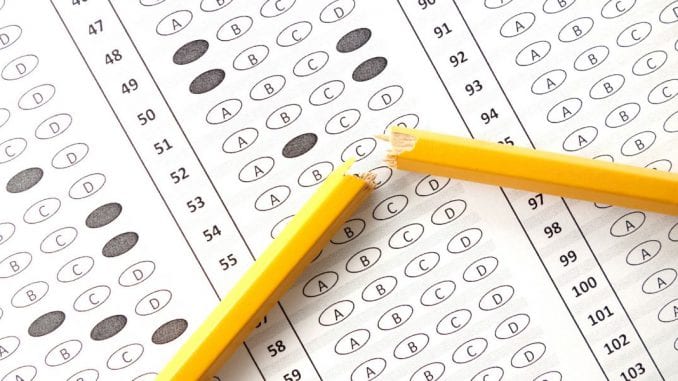
With the OSSLT exam taken April 10th by grade 10 students across Ontario, the popular debate on the fairness and value of standardized testing is subject to conversation once again.
The Ontario Secondary School Literacy Test (OSSLT) is a provincial wide, compulsory standardized test for all Catholic, private and public secondary school students in Ontario who wish to obtain the Ontario Secondary School Diploma (essentially graduate from high school). The OSSLT is written by grade 10 students every year to assess their reading and writing skills.
Due to a societal push for educational accountability in our schools, this leads to a dramatic increase in the use of these assessments across schools, districts and nations.
The primary conundrums in standardized testing lie in the validity and applicability of the test results. Validity relates to how accurately the test results actually reflect the students’ knowledge about the subject. It evaluates student’s performance without considering external factors. The factors that affect its validity and a students performance are based on environmental factors, situational factors, and personal issues.
Standardized testing does not take into account Howard Gardner’s theory of multiple intelligences which is essentially the ability to “possess different kinds of minds and therefore learn, remember, perform, and understand in different ways”. This theory is composed of seven identifiable distinct bits of intelligence: naturalist (nature smart), musical (sound smart), logical-mathematical (number/reasoning smart), existential (life smart), interpersonal (people smart), bodily-kinesthetic (body smart), and linguistic (word smart). Standardized tests, however, merely cater to one type of intelligence, depending on the subject. It neglects a student’s varied capabilities and skills. Ultimately, it creates a limited scope of a student’s learning and success.
Standardized testing has its benefits such as: creating curriculum guidelines, preventing marking bias and helping to identify problem areas within a school or community. However, it proves to be weak and unfair at being able to correctly assess how much an individual student has grown over the course of the year in their intellectual abilities.
